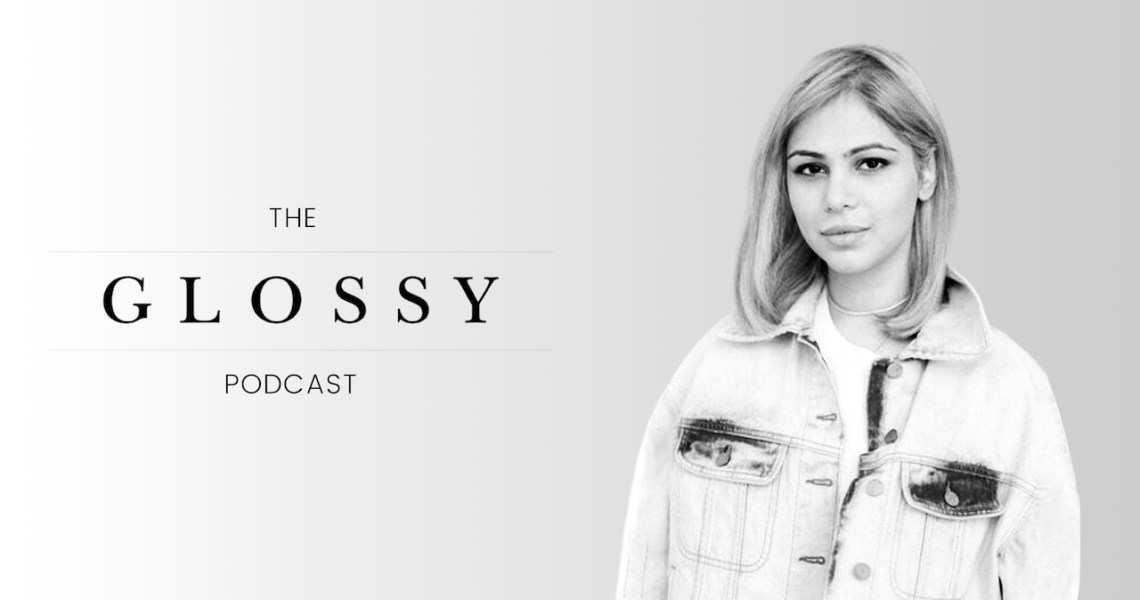Subscribe: Apple Podcasts | Stitcher | Google Play | Spotify
Speaking for her corner of the fashion industry — luxury denim — Warp+Weft founder Sarah Ahmed said that discussions around racial issues should only be beginning. “If everyone was always receptive to this — to racial equality — we wouldn’t be having these problems,” Ahmed said on the Glossy Podcast.
“We all need to take a look: maybe the joke that we make, the model choice that we made — why did we make that?” she said.
Warp+Weft is progressive on other fronts. Its manufacturing process consumes a fraction of the water that jeans — a notoriously resource-intense garment — typically do, according to Ahmed.
And because of the impact of the pandemic, Ahmed hopes to make the family-owned businesses she’s a part of (Warp+Weft is one, DL1961 is the other) smarter about human resources.
Ahmed said the company saw a spike in e-commerce sales — yes, even though they’re jeans, not sweatpants. But it still had to make layoffs. For the future, Ahmed said, “I talk to people on the team and tell them ‘Listen, let’s make you and this role irreplaceable — and so key to the company that you feel needed, and we need you, and you’re pandemic-proof.’ I think that’s how employers need to be looking at their roles.”
Here are a few highlights from the conversation, which have been lightly edited for clarity.
Ad position: web_incontent_pos1
‘An uphill battle’
“We need to support the Black and brown community. We all have our stories we need to check at the door, because this is the movement that will set the precedent for fixing this system. Because it is so deeply broken. If you don’t fix the oldest racial problem right now in the place you are living, your story is going to only get worse. And we’re all in this together. We don’t need to make people feel tokenized, we don’t need to make it feel transactional. We need to do it in a way that seems authentic. For a premium brand, in the space that we’re in, that is going to be a little bit of an uphill battle. If everyone was always receptive to this — to racial equality — we wouldn’t be having these problems. We all need to take a look: Maybe the joke that we make, the model choice that we made — why did we make that? [It’s about] self-questioning, checking, talking about it. We have a lot of hard conversations. Making choices that we can be accountable for is key in business right now.”
Making future jobs indispensable — and staff valued
“I did feel like, ‘Oh, my God, maybe I could have built this better.’ Now we are building it to withstand any pandemic. I talk to people on the team and tell them, ‘Listen, let’s make you and this role irreplaceable — and so key to the company that you feel needed, and we need you, and you’re pandemic-proof.’ I think that’s how employers need to be looking at their roles. Our layoffs were less, compared to a lot of people. I know other people in premium [denim] who laid off 80-90% of their teams and also a lot of people in DTC who laid off an insane amount of people. I do think a lot of DTC people — a lot of beauty and clothing brands we love — had these insane valuations. Of what? I would always tell our team, ‘Guys, how are these real jobs?’ They had given a false sense of hope and achievement, because they got insane valuations and money, and were creating jobs that were not real. Everyone who worked at these companies was drinking the Kool-Aid and felt they could be the CEO, without there being an actual career trajectory to get there. That kind of deception troubles me deeply.”
Young entrepreneurs were the most blind-sided by coronavirus
“These are companies [like Levi’s] that are built to last. These are companies that care about their people and the future. I don’t know if that DTC CEO even thought the idea of the pandemic was real, that this was a possibility, that the bubble could burst. Did they think about it while they were at Burning Man and networking with this or that VC? No. It’s a bit of self-reflection in our culture. If you’re going to have people like me and all these young CEOs, I hope that this defines [us]. [I hope] that, when we go back to our work and continue to run our companies, the sense of responsibility for others is deeply ingrained.”




